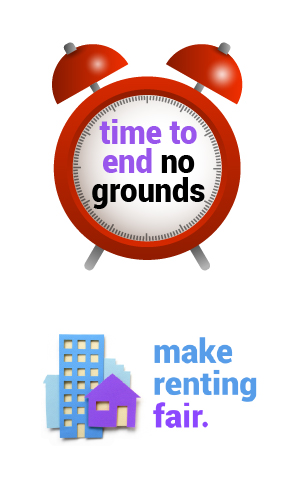Secure, affordable tenancies and support for tenants key to preventing homelessness
30/07/2020
Today the Tenants' Union NSW's CEO Leo Patterson Ross and Policy and Advocacy Coordinator Jemima Mowbray attended a public hearing of the Inquiry into Homelessness in Australia to speak to the Tenants' Union's submission. We've published our opening statement below. A full transcript of the session will be available on the Inquiry website, along with our submission in full (submission 157). You can also download the Tenants' Union NSW's submission here.
Tenants' Union NSW opening statement to the Standing Committee On Social Policy and Legal Affairs' Inquiry into Homelessness in Australia
Leo Patterson Ross:
I acknowledge we are all meeting on many various Aboriginal lands, and that today I am speaking from the land of the Terramerragal.
Thank you for the opportunity to speak to the committee, and thank you to the Australian parliament for taking the time to consider this vital issue.
We have been the peak body representing tenants’ interests in NSW since 1976. One of the main projects of our work has been to prevent homelessness. Our work, whether protecting legal rights or advising government of needed legislative and policy reform, is ultimately aimed at ensuring that everyone has a good home. We recognise homelessness is not simply a lack of a roof, but also a lack of security, stability and safety in our shelter.
Everyone deserves a home. Housing is the basis from which we ensure our communities’ well-being. This is not simply about the material, physical and structural protections housing provides, but also a sense of home and belonging within a wider community. The Australian housing system, and in particular the private rental market, has failed to ensure everyone has access to safe, secure, affordable housing. This failure increases both the risk of homelessness for vulnerable renting households, and the barriers to people developing a pathway out of homelessness.
Our submission highlighted three main routes for the prevention of homelessness. They are: ensuring the legislative framework for residential rental law is appropriate and effective at ensuring people can both find and keep their rented home.
Ensuring the costs of housing are not placing people at risk of homelessness. This requires ensuring households have both the resources to pay for their housing and other needs, and a sufficient supply of genuinely affordable housing.
Finally, people who rent need both advisors and advocates to prevent negative outcomes. All states and territories fund advice services who offer. However these services are not funded in line with demand to ensure that when a person needs advice services they can receive assistance in a timely way. Renters also need public advocates, particularly at the national level to be able to share their experiences in timely effective ways with policy makers.
My colleague Dr Mowbray will now share one story of a person who has contacted the Tenants’ Union recently.
Jemima Mowbray:
Thank you Leo and again thank you Committee for the chance to speak to you. Today I’m speaking from Daruk land.
In our written submission we shared Ben’s experience. At the time Ben was waiting on the result of his Tribunal application challenging his ‘no grounds’ eviction as retaliatory. Unfortunately while the Tribunal found the eviction was retaliatory, they decided to allow it. The Member told Ben: even if I stopped this eviction, the landlord can just evict you again in a couple of months. But Ben tells me he has nowhere to go.
Ben’s story is one I have heard many times: eviction pushing people into homelessness. We’ve previously publicly shared many of these.
We've shared Angie's experience. Angie was evicted for 'no grounds' from her Central Coast home, though told confidentially it was because “the landlord is sick of you”. When her tenancy applications were continually declined because of her low income from the Disability Support Pension, she was forced to put furniture in storage, rehome her dogs, and couch surf with family.
Kye and her daughter two weeks into the COVID19 pandemic received a ‘no grounds eviction. “I can’t afford to move” she told me when I spoke to her soon after, “I’ve faced homelessness before”. I do not want to face it again”.
Yesterday I spoke with Kate, who'd been living 8 years in her Sydney home. Just like Ben she’s been chasing repairs. Just like Ben she recently received a ‘no grounds’ eviction, she believes in retaliation. Kate tells me the eviction is making her unwell and anxious. Because she’s worried about moving in the middle of a pandemic, and unsure she’ll actually find another home she can afford.
We share these stories because we know how easy it is - in the midst of discussions about policy and legislative frameworks and key recommendations - to lose track of the lived experience of the loss of home, and of insecure, unstable housing.
Keeping these stories and experiences front and centre refocuses our efforts and resolve.




